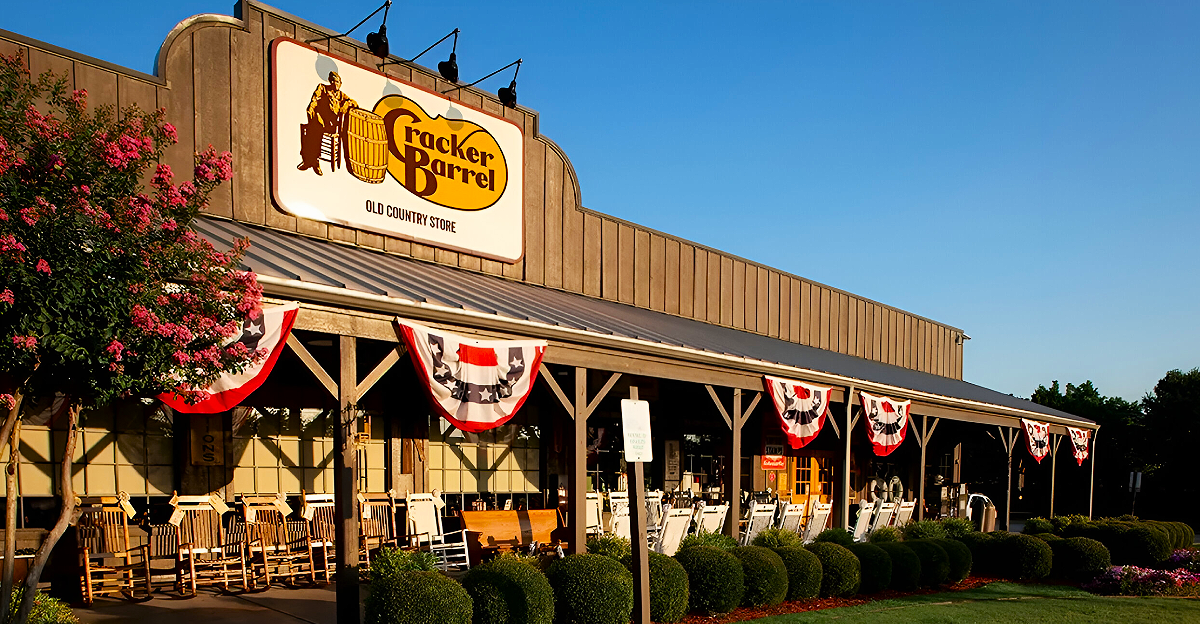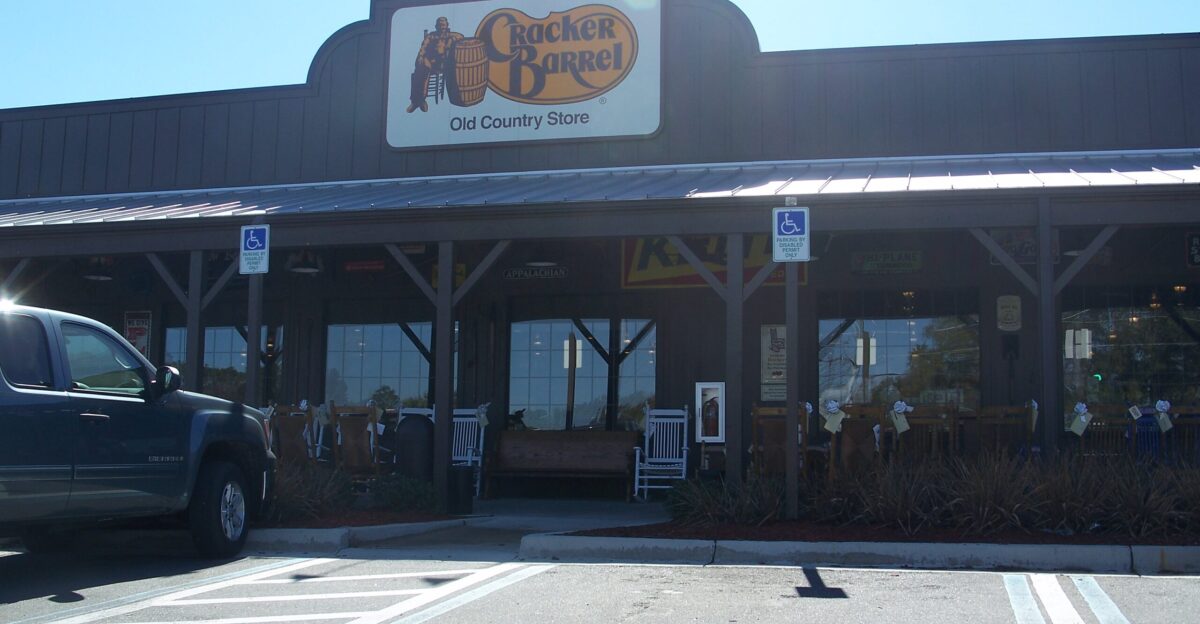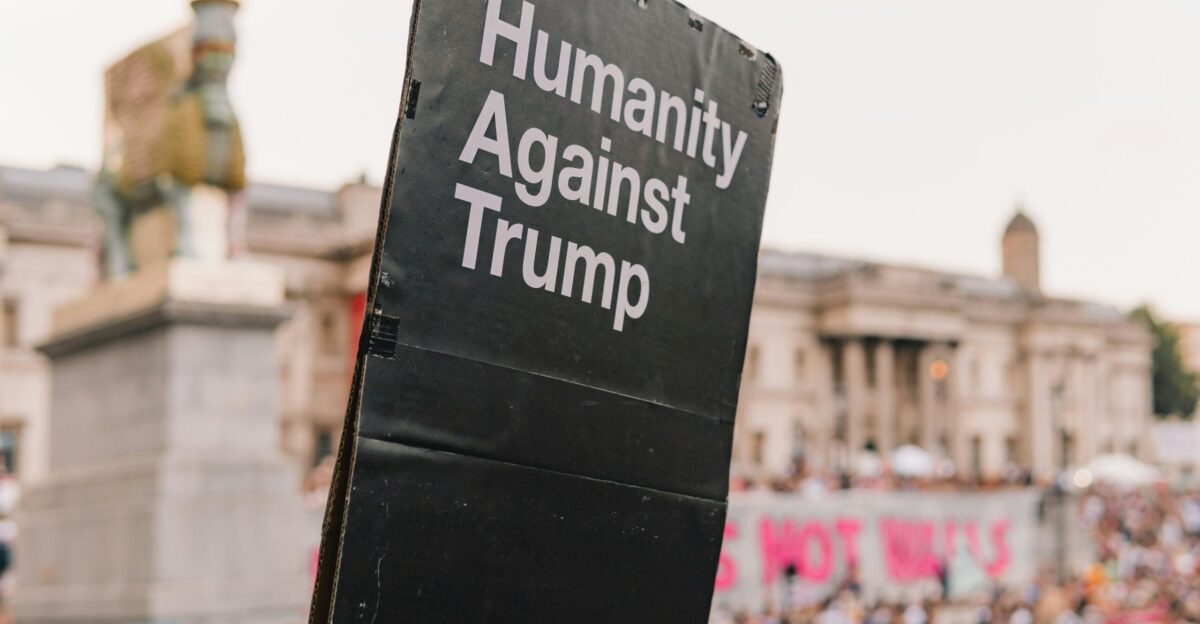
Cracker Barrel Old Country Store is the center of a national controversy as federal and state investigators examine its diversity, equity, and inclusion (DEI) hiring practices. America First Legal, a conservative legal group, recently filed formal complaints with the U.S. Equal Employment Opportunity Commission and the Tennessee Attorney General.
They are alleging that Cracker Barrel’s DEI initiatives constitute unlawful discrimination by favoring certain groups based on race and gender. Where will this high-profile case end, and will the outcome be the best for people?
What Sparked the Accusations?

According to complaints filed with both the U.S. Equal Employment Opportunity Commission and the Tennessee Attorney General, America First Legal (AFL) alleges that Cracker Barrel’s rebranded “Culture and Inclusion” programs still reward or advance employees based on protected characteristics such as race, sex, and sexual orientation.
Specific accusations point to Business Resource Groups (BRGs) and employee development initiatives that ostensibly offer certain benefits only to minority, women, LGBTQ+, and other specified groups, potentially excluding white, male, or heterosexual employees.
Cracker Barrel’s Recent DEI Rebranding

Their rebranding, implemented in 2024, emphasizes the company’s intent to create an inclusive environment and promote a diverse workforce. The new framework organizes its focus areas around “Culture,” “Workforce,” and “Business,” and maintains the use of Business Resource Groups (BRGs) such as those supporting Black, Hispanic, LGBTQ+, and women employees.
Critics argue that the change from DEI to “Culture and Inclusion” is largely cosmetic and that old policies are still being implemented despite the label change.
America First Legal’s Complaint

“Americans are fed up with major American corporations serving up DEI as if it is entirely okay. Treating people differently because of the color of their skin or their sex is not only wrong, it is illegal. AFL has fought DEI since the Biden Administration spent four years celebrating and encouraging its wholesale implementation across the country.”
“Now, companies are retreating from the term ‘DEI’ but retaining their discriminatory policies. Cracker Barrel and other American corporations must take discrimination by any name off the menu once and for all,” said Will Scolinos, America First Legal Counsel.
Violations of Federal Law

The complaint argues that these policies breach Title VII of the Civil Rights Act of 1964, which prohibits employment discrimination based on race, color, sex, or national origin. The complaint cites Supreme Court precedent affirming that Title VII forbids policies that overtly or subtly impose racial or gender balancing, no matter how well-intentioned.
AFL is pushing for state and federal enforcement actions to force Cracker Barrel to end these allegedly discriminatory practices and comply fully with federal anti-discrimination statutes.
What DEI Programs Are in Question?

The diversity, equity, and inclusion (DEI) programs mentioned in this accusation are focused on supporting specific employee groups through targeted career development, hiring, and retention efforts. These are programs like “Be Bold,” which is dedicated to cultivating and developing Black leaders; the HOLA BRG, which aims to promote Hispanic and Latino culture and talent; and similar groups for LGBTQ+, neurodiverse, and women employees.
Public filings and internal documents reveal that the company tracks workforce demographics by race and gender, and explicitly considers these factors when evaluating candidates for leadership roles, including seats on the board of directors.
A Changing DEI Landscape

A wave of new state laws and federal executive orders in 2025 has sought to ban race- and gender-conscious initiatives, strip funding from DEI offices, and penalize companies. Federal agencies have begun large-scale investigations into universities and corporations, while prominent businesses have rebranded, scaled back, or disbanded their DEI efforts.
Supporters argue that DEI remains vital for addressing persistent inequality, but the current environment has made even routine inclusion efforts a high-stakes matter.
Tracking Diversity

As of July 2023, over 30% of the company’s employee base identified as racial or ethnic minorities, and approximately 68% as female. The company also tracks the representation of women and ethnic minorities among professional staff, management, and hourly employees, noting increases across these categories since fiscal year 2022.
“Cracker Barrel’s policies openly discriminate against heterosexual, white, and male employees in favor of diverse employees,” argues AFL.
Impact on Business and the Industry

Despite the ongoing scrutiny and potential legal risks, Cracker Barrel’s recent financial results have remained stable: revenue climbed to $949.4 million in the most recent quarter, and according to Nasdaq, guidance for full-year 2025 remains between $3.45 billion and $3.5 billion.
However, industry observers note that DEI controversies can dramatically affect brand reputation and customer loyalty. For now, Cracker Barrel’s stable revenues suggest operational resilience. Still, the longer-term impact on its brand, recruitment, and customer base remains uncertain as the investigation unfolds and industry standards evolve.
The Business Case for DEI

A national survey found that 77% of executives believe DEI boosts financial results, while 81% credit these policies for strengthening customer loyalty. At the same time, scaling back DEI can carry its own risks, including consumer boycotts, negative media coverage, and challenges attracting and retaining top talent.
Business leaders wary of legal exposure and culture clashes worry that poorly implemented or overly quota-driven policies may result in costly litigation, reputational risk, and employee disengagement.
Cracker Barrel’s Apparent Silence

Despite public scrutiny and repeated inquiries from media outlets, Cracker Barrel has remained notably silent in the wake of the federal investigation into its DEI policies. As of late July, the company has issued no official statements addressing the complaints lodged by America First Legal or the controversies surrounding its rebranded “Culture and Inclusion” strategy.
News organizations and advocacy groups report that Cracker Barrel has not responded to multiple requests for comment, leaving critics and supporters without insight into the company’s perspective or intended response.
Nominating Committee Under Fire

Recent complaints allege that the committee explicitly prefers certain factors when selecting nominees for the board of directors. Public filings, including the company’s own 2024 ESG report, confirm that the nominating committee actively tracks and categorizes directors as “diverse” or “not-diverse,” using diversity as a proxy for immutable characteristics.
Experts argue that this approach amounts to prioritizing identity over merit and claim it violates federal civil rights laws by making race and sex motivating factors in high-level corporate governance decisions.
Alleged State Law Violations

These allegations go further than breaking federal law. The AFL claims these practices violate Tennessee state law—specifically, the Tennessee Human Rights Act.
The complaint asserts that neither the rebranding of DEI efforts nor any cosmetic policy changes absolve the company of liability under Tennessee statutes, which prohibit discrimination based on race, sex, and other identifiers in hiring, promotion, and workplace benefits.
AFL’s Public Statements

“Cracker Barrel is almost as American as apple pie. Their store is full of classic Americana items, and it brands itself as a bastion of southern hospitality. If Cracker Barrel is discriminating against its employees and trying to hide it, it is failing to live up to its own brand and internal standards.”
“The government should vigorously enforce its civil rights laws and ensure any such discrimination is rooted out and destroyed,” said Nicholas Barry, America First Legal Senior Counsel.
What Comes Next?

Authorities such as the U.S. Equal Employment Opportunity Commission and the Tennessee Attorney General are expected to investigate these allegations meticulously in the coming months. Companies targeted in these investigations could face various outcomes: forced policy changes and costly compliance overhauls to potential civil penalties, the loss of federal funding, or even criminal exposure if any false certifications are found in federal contracting or reporting.
A near-term decision on enforcement and potential litigation is expected once key agencies submit their strategic recommendations to the White House in the next quarter.